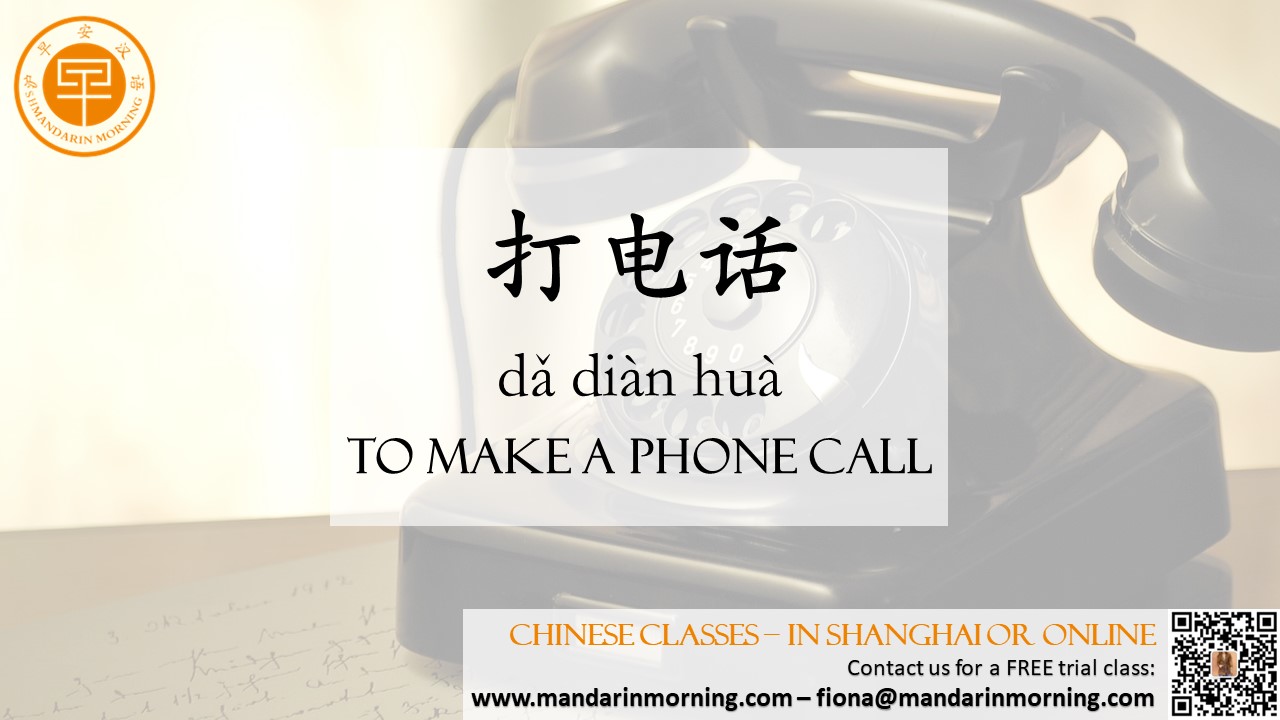| When distance comes into play, we often rely on a phone. Phone calls can be about different topics: a chat with a friend, a call from your boss, making a reservation at a restaurant, … That’s why, if you’re diving into the world of Mandarin, having a handful of telephone-specific phrases is essential. In today’s post, we’re unveiling 10 basic Chinese phrases to give you the confidence to dial and chat in Chinese.  Hello – 喂 喂 (wéi) is a unique greeting used predominantly for answering calls, distinct from the standard 你好 (nǐ hǎo), which means “hello” in face-to-face conversations. It’s essential to note this if you don’t want to sound like you’re always answering a phone, even when meeting someone in person! Who’s speaking? – 请问哪位? 请问 (qǐng wèn) is a polite way to say “may I ask,” and 哪位 (nǎ wèi) literally means “which person.” Together, the phrase 请问一下 (qǐng wèn nǎ wèi) is a courteous way of asking, “Who’s speaking?” on It’s me, Xiaoming. – 是我, 小明 Just say 是我 (shì wǒ), literally “is me,” followed by your name, and you’ve told the other person it’s you. Is Xiaoli there? – 小莉在吗? 在 (zài) means “to be here/there” in this context. 吗 (ma) is a yes/no question marker, turning the statement into a question. Replace 小莉 (xiǎo lì) with the name of the person you’re asking for over the phone. This phrase also gracefully fits scenarios like visiting a friend’s place. Just a second – 等一下 Melding 等 (děng), “to wait,” with 一下 (yī xià), “a brief moment,” creates a universally polite plea for a short pause, whether on call or in person. I’ll get Xiaoli for you. – 我去帮你叫小莉 This phrase seamlessly combines action and intention. Using 我 (wǒ) for “I,” 帮 (bāng) for “to help,” 你 (nǐ) for “you,” and 叫 (jiào) for “to call,” it offers a polite way to indicate you’ll get someone for the caller Xiaoli is tied up now – 小莉在忙 Combine 在 (zài), indicating a current state, with 忙 (máng), “busy”, to relay unavailability. Use 她现在不能接电话 (tā xiàn zài bù néng jiē diàn huà), meaning she’s unable to answer the phone right now. For males, swap out 她 with 他 (tā). I didn’t catch that. – 我没听到 If you’ve missed something during a phone call, let the caller know by saying 我没听到. 我 (wǒ) denotes “I,” while 没听到 (méi tīng dào) conveys “didn’t hear.” Need a repetition? Say to the caller 再说一次 (zài shuō yī cì; again say one time), asking them to repeat. Could you speak up a little? – 你可以大声一点吗? 你 (nǐ) is “you,” 可以 (kě yǐ) means “can,” 大声 (dà shēng) means “loud voice,” and 一点 (yī diǎn) means “a bit.” Together, the question 你可以大声一点吗 is especially useful if you’re in a noisy environment or if the caller has a soft voice. If you want to ask the person not to speak so loud, then replace 大声 with 小声 (xiǎo shēng; small + sound), and the rest of the sentence remains the same. You’ve got the wrong number. – 你打错电话了 你 (nǐ) is “you,” 打错 (dǎ cuò) means “dial wrong,” and 电话 (diànhuà) is “telephone.” The last character 了 is a grammatical marker. It’s a straightforward way to inform someone they’ve reached the wrong person. |